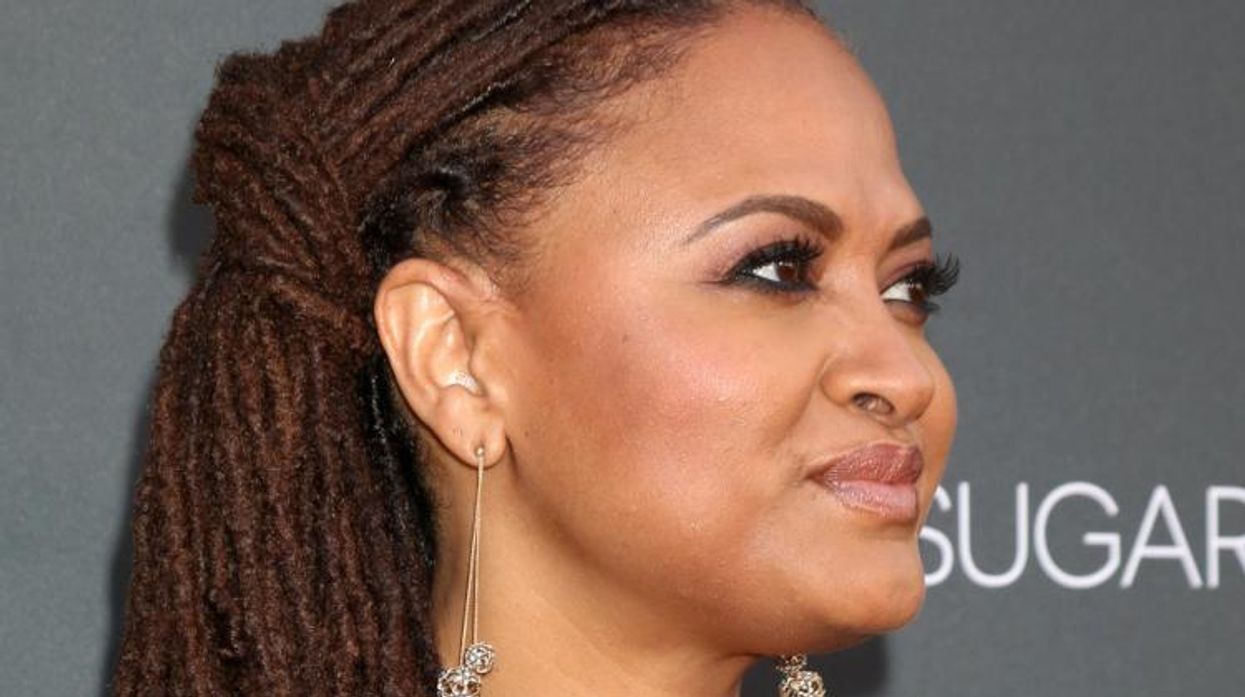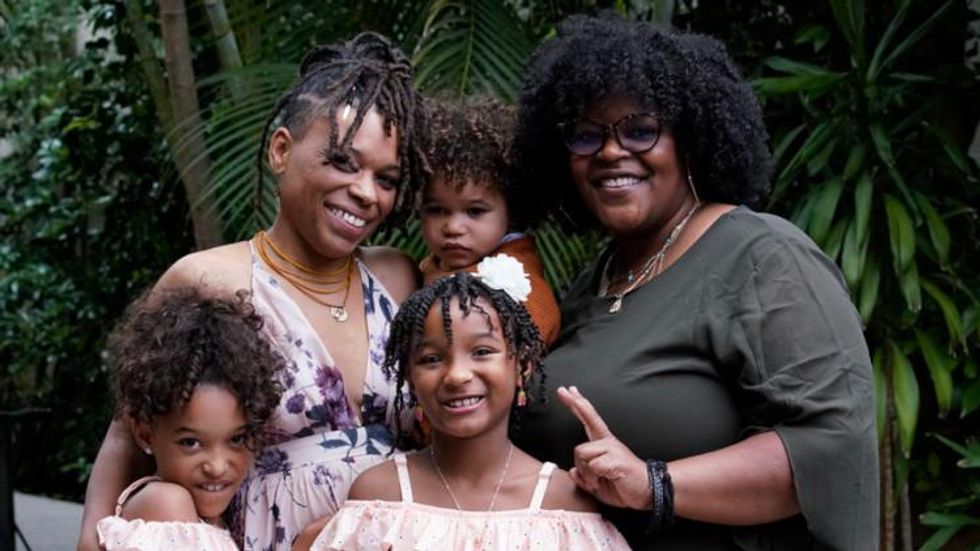For the past decade, Ava DuVernay has been making movies and shows that changed how Americans, and the world, view the Black experience. From Selma to the 13th (both Oscar-nominated) to her diverse take on A Wrinkle in Time, and more recently to her fictionalized drama on the life of basketball player/activist Colin Kaepernick, Colin in Black and White, DuVernay insists on making entertainment that matters.
DuVernay recently got into the unscripted business, but her new project for Peacock -- Home Sweet Home -- is a far cry from bachelors and housewives. The series, which premiered last month, features very different families swapping lives and homes for a few days; learning their routines, customs, joys, and sorrows. The show is not about conflict, but understanding. Home Sweet Home's first episode featured a Black, queer, women-led household exchanging homes with a Greek-American family headed by opposite-sex parents. Issues of race and privilege were explored, but through communication and epiphanies, not shouting matches. DuVernay spoke with The Advocate about the show and whether such a well-intentioned project can survive in an entertainment landscape where drama and fighting leads.
What was the impetus for the show?
We came up with it last summer; we were all quarantined and in the house, fortunate enough to be able to stay home. A lot of people weren't. So we were in our homes and trying to get through last summer and a lot of cultural unrest and instability and politics were happening; it was a hot mess. This show came out of a hot mess. The stew of turmoil. I started to think about the things that anchor us all. I became really grateful I could go home and close the door and just be myself at home. I know a lot of people were doing that and I became curious about what other people were doing behind closed doors and came up with this idea of wallking a mile in other people's shoes in their most intimate space -- their home. We put together a show that wasn't based in conflict, but in curiosity.
In the first episode, the two queer moms kept their cool -- even when they had to out themselves and when a member of the other family touched one of the women's hair.
Thank you for watching the show so closely. Ynidia was the coolest cucumber. There were things that happened where I would have reacted differently. We didn't do any prep; there were no contrivances in the show, like, "do [that take] again." I thought if I was going to do this, unscripted, I'm going to do it my way, which is documentary-style. What happens is what you see. Ynidia was so vulnerable early on. One of the things that made me cry in the edit was when she said, "If these people come in and are mean and unkind to my family, I'll be devastated."
She had learned about the other family's language and their dance. She really exemplified someone who delved into the experience and handled the thing with such grace. When the man touched her hair, I said, "Ooh, child."
 Photo by Casey Durkin/NBC
Photo by Casey Durkin/NBC
LGBTQ+ parents and especially LGBTQ+ parents of color are judged all the time. They have to keep their composure against microaggressions, and real aggressions, especially when kids are present.
It's unfortunate that the only acceptable response is to stay cool. It's privileged to be able to say what you really feel.
Another effecting scene is when Ynidia cries when thinking about how they, as Black people, don't have the same cultural markers that the Greek family does -- because the diaspora, racism, and slavery denied them some of the traditions of their ancestors through erasure. How important was that scene to you?
It was extraordinary and so telling. Ynidia is looking through this Greek family's pantry and seeing their culture and their history just through their pantry. This isn't a history lesson, this isn't politics, this is just food and the realization that their culinary taste as a family is so steeped in a lineage that goes back hundreds of years. It was extraordinary to watch unfold and my highest hope for the show would be; putting people who are curious in each other's spaces and watch how they feel and how they react and how they share. It became a profound lesson that's sprinkled throughout the whole series. I never could have written that. It was exactly what the show was supposed to do.
You said before the show was not about conflict, but so much unscripted television is. How do you make a reality show without the screaming and yelling? How do you keep people's interest?
I don't know! I don't even know if it's going to work. We're not trained to watch something unfold without conflict at the center and yet there are dramatic moments like the ones we talked about that come from a more organic place that's not contrived. It's drama, but it's not conflict. If it's conflict, it's internal conflict that someone's working out. Will that work on network television? I don't know! But I was willing and eager to roll the dice to see and I feel proud of the piece. If it has a small viewership for one season that is worth it because someone might see it and change their mind about the Muslim family or the queer Black family. Even those few are wins.
Home Sweet Home airs on Peacock.


 Photo by Casey Durkin/NBC
Photo by Casey Durkin/NBC


































































Charlie Kirk DID say stoning gay people was the 'perfect law' — and these other heinous quotes